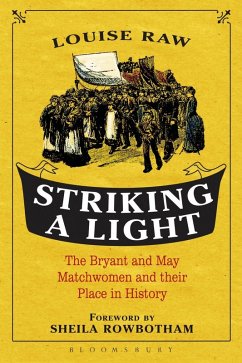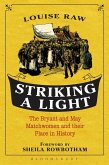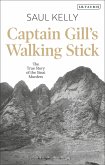In July 1888, fourteen hundred women and girls employed by the matchmakers Bryant and May walked out of their East End factory and into the history books. Louise Raw gives us a challenging new interpretation of events proving that the women themselves, not celebrity socialists like Annie Besant, began it. She provides unequivocal evidence to show that the matchwomen greatly influenced the Dock Strike of 1889, which until now was thought to be the key event of new unionism, and repositions them as the mothers of the modern labour movement. Returning to the stories of the women themselves, and by interviewing their relatives today, Raw is able to construct a new history which challenges existing accounts of the strike itself and radically alters the accepted history of the labour movement in Britain.
Bitte wählen Sie Ihr Anliegen aus.
Rechnungen
Retourenschein anfordern
Bestellstatus
Storno









